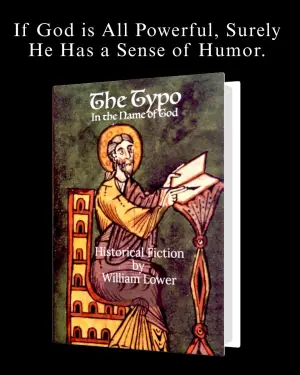A Journey Through Mythica: A New History of Homer’s World, Through the Women’s Lens
When I first picked up Mythica: A New History of Homer’s World, Through the Women’s Lens by Emily Hauser, I’ll admit, I was somewhat skeptical. As someone who has long been disenchanted by Homer’s narratives and the way ancient Greece often sidelined women’s stories, I approached this book with a mixture of curiosity and resistance. Could a fresh perspective on Homer—arguably the patriarch of western literature—illuminate something I had always dismissed? Would Hauser be able to shift the blame from a man’s world to one of shared history?
Hauser aims to reclaim ancient women’s stories that history often overlooks. She weaves her narrative through scraps of historical evidence and Homeric texts, thoughtfully addressing the voices of women like Cassandra and Circe. Yet, the book is not without its challenges; the nature of retelling these stories means dealing in “mays,” “might haves,” and “could haves.” The gaps in ancient history can make the narrative feel frustratingly incomplete, but it’s a testament to Hauser’s dedication that she even attempts this reclamation.
Hauser’s prose is often engaging, though at times it veers towards a pop culture reference overload—comparing Cassandra to Greta Thunberg, for example, made me raise an eyebrow. While I appreciate the intention to bridge ancient and modern contexts, it sometimes felt forced, a tad like trying too hard to connect with “the kids.” Furthermore, the structure of the book, organized by Homeric characters, occasionally left me wanting more depth. As much as I enjoy a nod to mythology, when a character’s story is thin, it can dilute the richness of the surrounding historical context.
One of the most poignant moments in the book is Hauser’s exploration of the twelve enslaved women at the end of the Odyssey, who serve as haunting reminders of the brutal realities of their existence. She writes, “Seen in this context, perhaps the brutal punishment meted out to the consummate scapegoats of the enslaved women represents an attempt to bar away the terrifying spectres…” This resonates deeply, as it underscores how these women’s plights serve as metaphors for broader societal fears. Yet, at times, I found myself clamoring for a stronger focus on these women’s narratives, aching for their stories to be the central thread rather than a backdrop to grander historical narratives.
While Hauser’s exploration of modern women writers and their reclamation of Homer is an important inclusion, it felt a bit heavy-handed in execution. The lists and references, while valuable, sometimes detracted from the central narrative, almost feeling like a marketing digression rather than a necessary exploration.
Despite these critiques, I finished Mythica with a newfound appreciation for Hauser’s efforts to shine a light on a marginalized aspect of ancient history. While the book didn’t convert me into a Homer enthusiast, it cracked open a door for me—a space where I can imagine a richer, more inclusive retelling of history.
I’d recommend this book to anyone intrigued by the intersection of gender and history, particularly those who wrestle with the complexities of our literary past. It’s an audacious undertaking that doesn’t shy away from the discomfort of its subject matter, and for that, Emily Hauser deserves applause. In navigating the ancient and the modern, Mythica provides a unique perspective that may inspire readers to ponder their own narratives in the context of history—a worthy goal indeed.
Discover more about Mythica: A New History of Homer’s World, Through the Wo… on GoodReads >>






